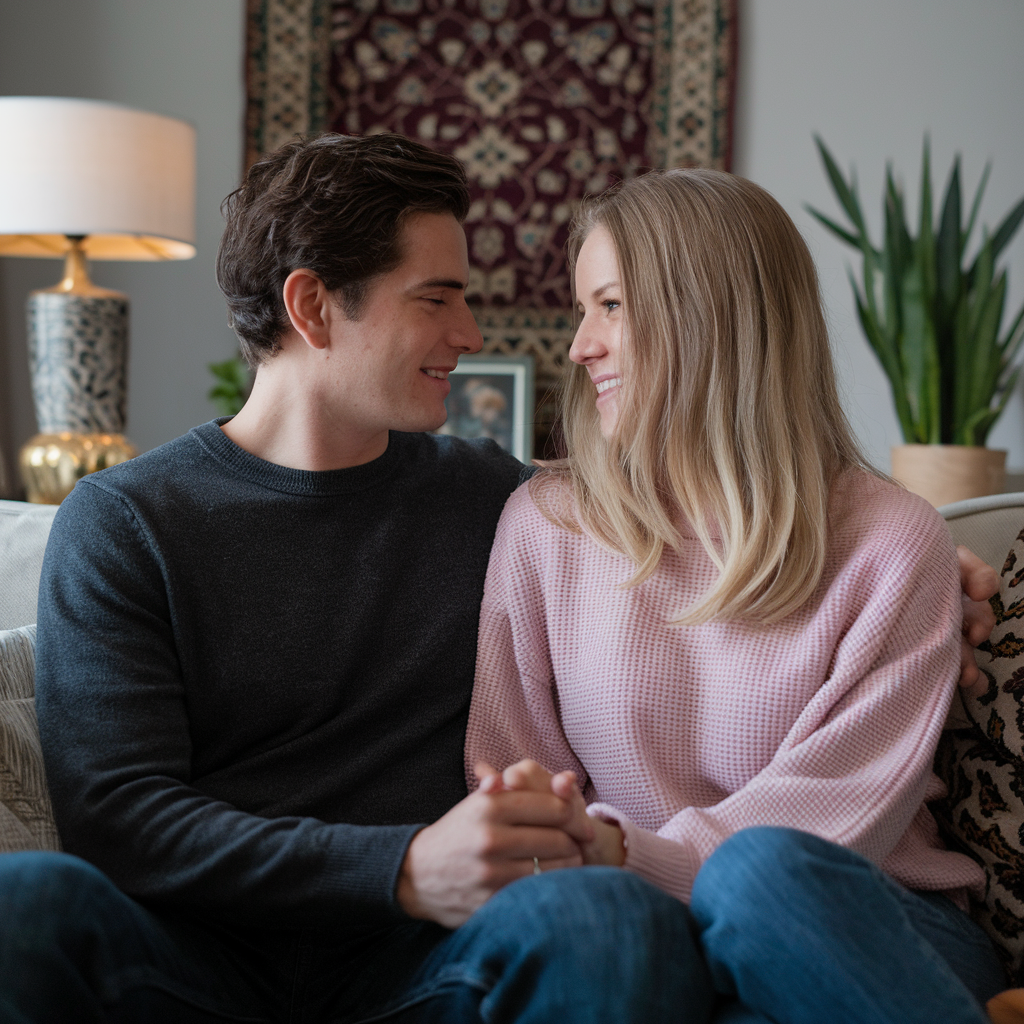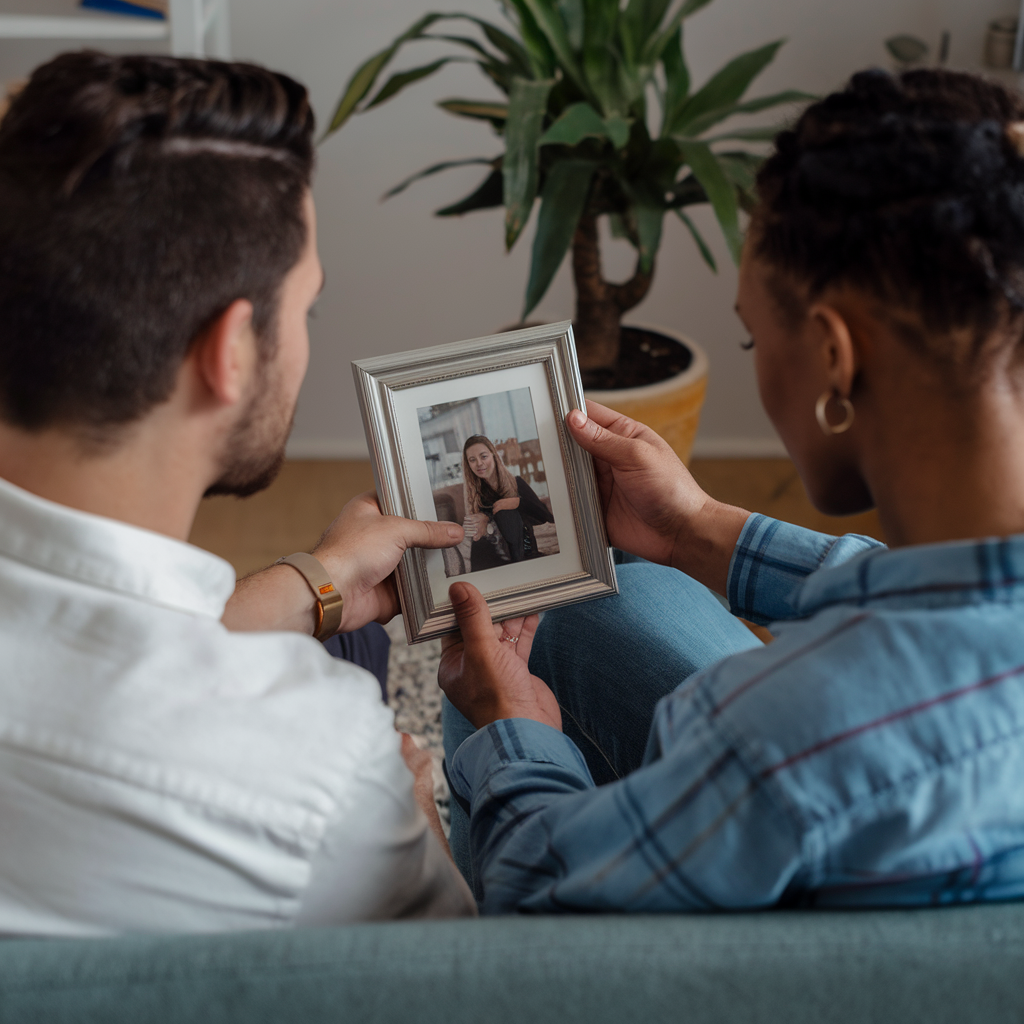Key points
Here is the response with 3 key points about what to consider before entering an open relationship:
- Communication is key before an open relationship. Both partners should discuss boundries, expectations, and concerns in a open dialog.
- Understand why each partner wants it, expect your reasons may differ. An open relationship may help address unmet needs but won’t fix core issues.
- Start slow. Begin with just talking about it, then move to flirting with others, before committing to sleep with others. Take small steps to test comfort levels.
Contents
So What Is An Open Relationship?
An open relationship is an agreement a couple makes to be nonexclusive. They let each other date and sleep with people outside their relationship. There are rules and stuff so no one gets jealous. Talking with each other and trusting each other is the main thing.
Common misconceptions about open relationships
Some people think open relationships mean there are no rules or it’s just about hookups. But they require a lot of work and communication. Sleeping around and cheating is not the permit to freedom. The partners discuss the things that are allowed and the things that are not. Some common misconceptions are:
Benefits and challenges of open relationships
An open relationship can enhance a relationship but comes with challenges. The benefits would be more freedom and less jealousy and one can explore their sexuality. Having insecurities, setting boundaries, and managing my time. Life is all about balancing it all.
The key to success is effective communication, respecting each other’s needs, and knowing that it’s ok to change the rules. What works for one may not work for others.
Self-Reflection and Personal Values

Before you go opening up your relationship, it’s really important to take a long, hard look in the mirror and think about what’s most important to you. Think for yourself – why you want to do this? Am I satisfied with my partner and the way it is? Do I want to stay devoted or do I want to escape? Don’t be dishonest with yourself about what you want and need. Be Open with Your Partner About Your Choices
Assessing personal motivations for wanting an open relationship
Lots of people want to open things up for many reasons, like if you want more excitement and variety, or if you and your partner have different needs. There is a chance that your partner wants to date new people. But make sure your intentions are true. A couple who opened their relationship due to problems in their relationship barely ever works out. It is better to settle any dispute before going ahead to the wedding.
Understanding personal boundaries and limits
For an open relationship to work, all parties need to be on the same page on what’s ok and what’s not ok. To do some soul searching to know your limitations – how far do you wanna go with what you know about your partner’s other relationships? What actions can’t you do? Are sleepovers ok? If you know the limits of what you want from this person it will prevent hurt feelings in the future.
Evaluating comfort with jealousy and emotional management
Even if you think you could handle an open relationship, jealousy and complicated feelings often pop up. Take a good look at whether you’re okay with your partner seeing other people.
If the thought makes you very uncomfortable that the idea of your partner making love to someone else, an open relationship may not be for you, at least not yet. Take it slow and keep chatting to see if you feel more at ease as time goes by.
Communication and Honesty

Being real and honest with your partner important in an open relationship. If you wanna make it work, have a chat about expectations and desires with present and potential partners. It allows you to set agreements and boundaries that work for everybody involved. When a couple talks things over openly, they avoid hurt feelings later.
Importance of open and honest communication with partners
You need to be honest about what you want with your partners. Startup secrets or hide stuff with us will only land you in problems later. Get the awkward convos out of the way so everyone’s on the same page. Always speak the truth it’s important. It helps build trust.
Discussing expectations and desires with current and potential partners
Before jumping into a new relationship, get a full understanding about what the other person expects out of the relationship, and whether they are sexually exclusive. Make sure nothing is unclear; go over everything. “How about we come up with a bunch of boundaries that we can all agree on?” Keep talking as things change or evolve down the road.
Establishing rules and agreements that suit all parties
With good communication, rules can be made that suit everyone. Compromise when needed. Don’t forget to check back periodically because people’s needs tend to evolve. As long as respect for all partners is maintained and they all think alike. Keep working at it!
Emotional Preparedness

You should prepare yourself for feelings of jealousy from your husband’s side if they are involved. Even if you think you will be fine with it, them doing it can bring up unexpected feelings. You really need to think what you are going to do and how will you handle it.
Developing emotional resilience and coping mechanisms
Better work on your resilience and coping skills to get emotionally ready. If you want to stay cool, do meditation or yoga. Find ways to stay entertained such as hanging out with your pals or do any kind of hobby you like. When you have outlets it will help you deal with any feelings that come up.
Recognizing and addressing insecurities
Think deeply about the problems you could potentially face in an open relationship before entering one. You might feel bad that your partner likes someone else more or that you’re not attractive enough. Whatever it is, never ignore insecure thoughts as they may ruin things. Address them head on.
Building trust and maintaining emotional intimacy
In order for an open relationship to work you need to trust each other completely and have a strong emotional bond. Talk to each other regularly about your feelings, and if something is bothering you. Continue to enjoy romantic activities together. Keep dating and prioritize the relationship over other pursuits.
Negotiating Boundaries and Agreements

When you are just thinking about opening up your relationship, have a couple of honest conversations with your partner about what both of you are okay with. This isn’t an easy topic for most guys to talk about but it is important to level with one another. Hearing closely and talking sincerely has to be done. Be flexible but clearly lay down your boundaries. When possible, compromise but never agree to something that doesn’t sit right in your stomach.
Setting clear boundaries and respecting them
You should respect the rules once you decide what is acceptable and what is not. Do NOT cross the line or push limits without a talk through again first. Trust is everything here. If your partner does not like something, do not persuade them otherwise. Just deal with it and move on. This way of life only works if you honor the agreements.
Revisiting and renegotiating agreements as needed
Human feelings can change over time. Be sure to communicate on a regular basis to ensure you both have the same rules. You’re not gonna surprise the other person with what you say. Be ready to compromise. Changing contracts is okay and healthy as you grow.
Balancing freedom and responsibility
This way of life allows you to try new things but you have to be responsible. Don’t take your partner for granted just cause you’re open. Make sure to put in effort to meet each other’s needs.
The health of your relationship comes first. It’s not about escaping; it’s about improving. Freedom is a great thing, but it also comes with responsibility.
Community and Support
When you are thinking of exploring open relationships, meeting others who do the same can be helpful. A community of people like you lets you open up and share your experiences, ask questions, and get support. Ya know?
Seeking support from like-minded communities
Try lookin’ for local meetup groups or online forums focused on ethical non-monogamy. Talking with people who are in open relationships helps. You can gain a lot of insight from those who know better.
Learning from others’ experiences in open relationships
Every member of the community will have all sorts of stories and learnings to share. Hearing about their successes, failures, and epiphanies can assist you in getting ready for what’s to come. You can always learn something from people who are older than you.
Accessing resources for further education and understanding
It’s not just about real people – there are now also books, podcasts, and websites with tips for making open relationships work. By using these resources, you will build your knowledge and clarity and so it’s all about a strong base.
Frequently Asked Questions (FAQ)
How can you maintain intimacy in an open relationship?
Scheduling dedicated quality time, engaging in deep conversations, and participating in bonding activities with your primary partner can help maintain intimacy amidst the freedom of an open relationship.
What are some ground rules to set for an open relationship?
Common ground rules include defining which activities are permitted, using protection, checking in frequently, and respecting each other’s boundaries and privacy.
What should someone new to non-monogamy know?
Communication, self-awareness, and patience are key. Move slowly, check in often, and be prepared to reevaluate boundaries as you learn and grow together.
How can an open relationship strengthen the primary partnership?
Exploring new connections can lead to personal growth, novel experiences, and fresh perspective, ultimately enhancing intimacy with your primary partner.
What misconception about open relationships causes issues?
That open relationships are an excuse to cheat or a sign that the primary relationship is inadequate rather than an informed choice requiring work and communication.
How should you choose additional partners?
Look for those who understand non-monogamy, share compatible values, and don’t undermine your existing relationships.
What happens if jealousy arises?
Address it compassionately through open communication between all partners involved and adjust agreements or expectations accordingly.
How do you introduce non-monogamy into a relationship?
Gradually, when the relationship is stable. Discuss reasons, hopes, and concerns thoroughly. Consider counseling to facilitate healthy transition.
What are solo polyamory and hierarchical polyamory?
Solo polyamory values autonomy and free interconnections. Hierarchical poly prioritizes a primary partnership while allowing secondary relationships.
How can therapists help with open relationships?
By creating a judgement-free space to unpack emotions, improve communication skills, and determine if non-monogamy aligns with your goals.

I am an award-winning author who has deep insights into the world of dating & relationships. I have won several awards including Andromeda Magazine – Fantasy Short Fiction Story award amongst several other awards and writing achievements.